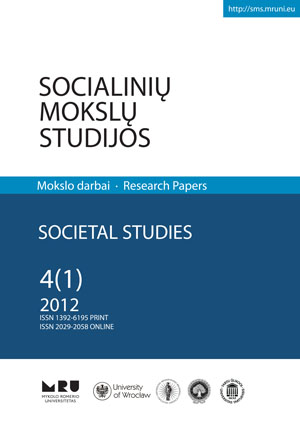Individualių žmogaus teisių gynimo galimybės Europos Žmogaus Teisių Teisme ir Jungtinių Tautų Žmogaus teisių komitete: lyginamasis aspektas
Individual Human Rights Protection Opportunities in the European Court of Human Rights and Human Rights Commitee: Comparative Approach
Author(s): Dalia Vitkauskaitė-MeuriceSubject(s): Social Sciences
Published by: Mykolas Romeris University
Keywords: human rights; European Court of Human Rights; Human Rights Committee; petition litigation
Summary/Abstract: The article is dedicated to the comparative analysis of the United Nations and European human rights system with the goal to establish a more efficient human rights forum. The article covers seven efficiency criteria established in the doctrine, studies pros and cons of regional and universal human rights systems and tries to identify more favorable human rights forum from the point of view of the applicant. The article is mostly based on doctrine and interviews with human rights practitioners concerning the problems arising to individual applicants in the European and universal human rights bodies. The author identifies problems arising at two different levels. The analysis of this level is necessary in order to understand the reasons why the applicant may choose to participate in a particular human rights forum. The first level determines if the applicant is able to participate in international litigation process in general. Through key elements, such as access to information about the existence of international human rights bodies, possibility to obtain legal aid and, last but not least, influence on the international litigation process of the state against which the application is targeted, the author indentifies the most accessible and ‘friendly’ forum for applicants. The second level of the problems is linked with the efficiency of international litigation in the Human Rights Committee and the European Court of Human Rights. The author refers to the key criteria, such as the speed and efficiency of the process, the possibility to apply interim measures, the particularities of the litigation process (oral or written process), the quality of decisions adopted by the human rights forum, the follow-up of the process), in order to establish the efficiency of the chosen human rights forum and to provide recommendations to the future applicants. The author comes to the conclusion that despite pros of international litigation conducted by the Human Rights Committee (i.e. the shorter term of litigation, more favourable admissibility requirements towards the applicant), the United Nations human rights system is not optimal for the complaints aimed at material compensation. From this point of view, regional human rights bodies would be seen as more favourable. Moreover, the United Nations human rights treaty bodies are severely criticised for many elements of the international human rights litigation such as state noncompliance with interim measures or views delivered by committees, lack of availability of legal aid, written procedure, confidentiality and other disadvantages.
Journal: Socialinių mokslų studijos
- Issue Year: 4/2012
- Issue No: 1
- Page Range: 251-276
- Page Count: 26
- Language: Lithuanian

